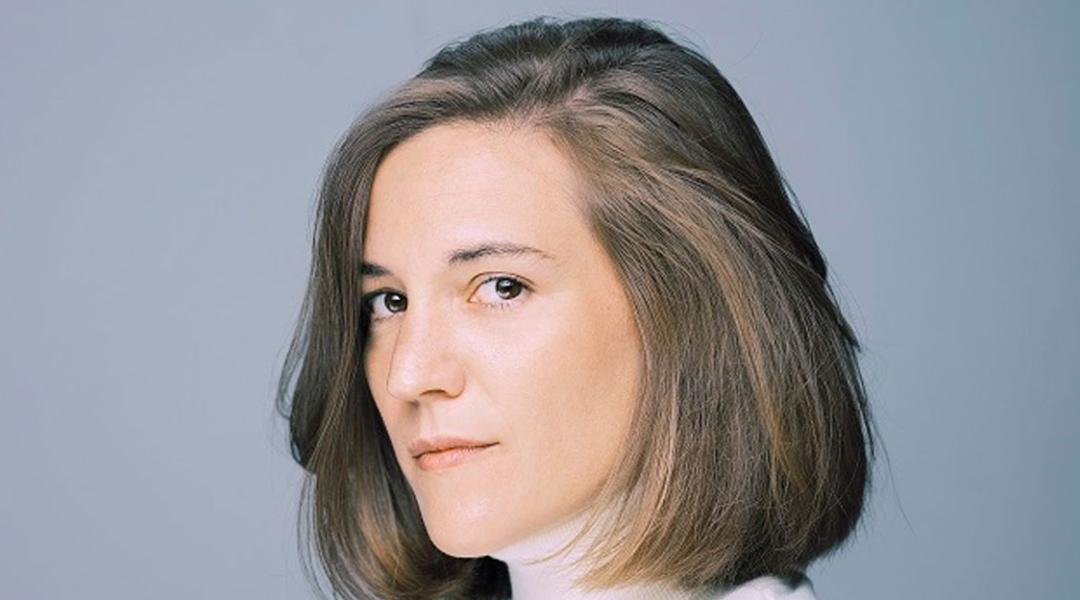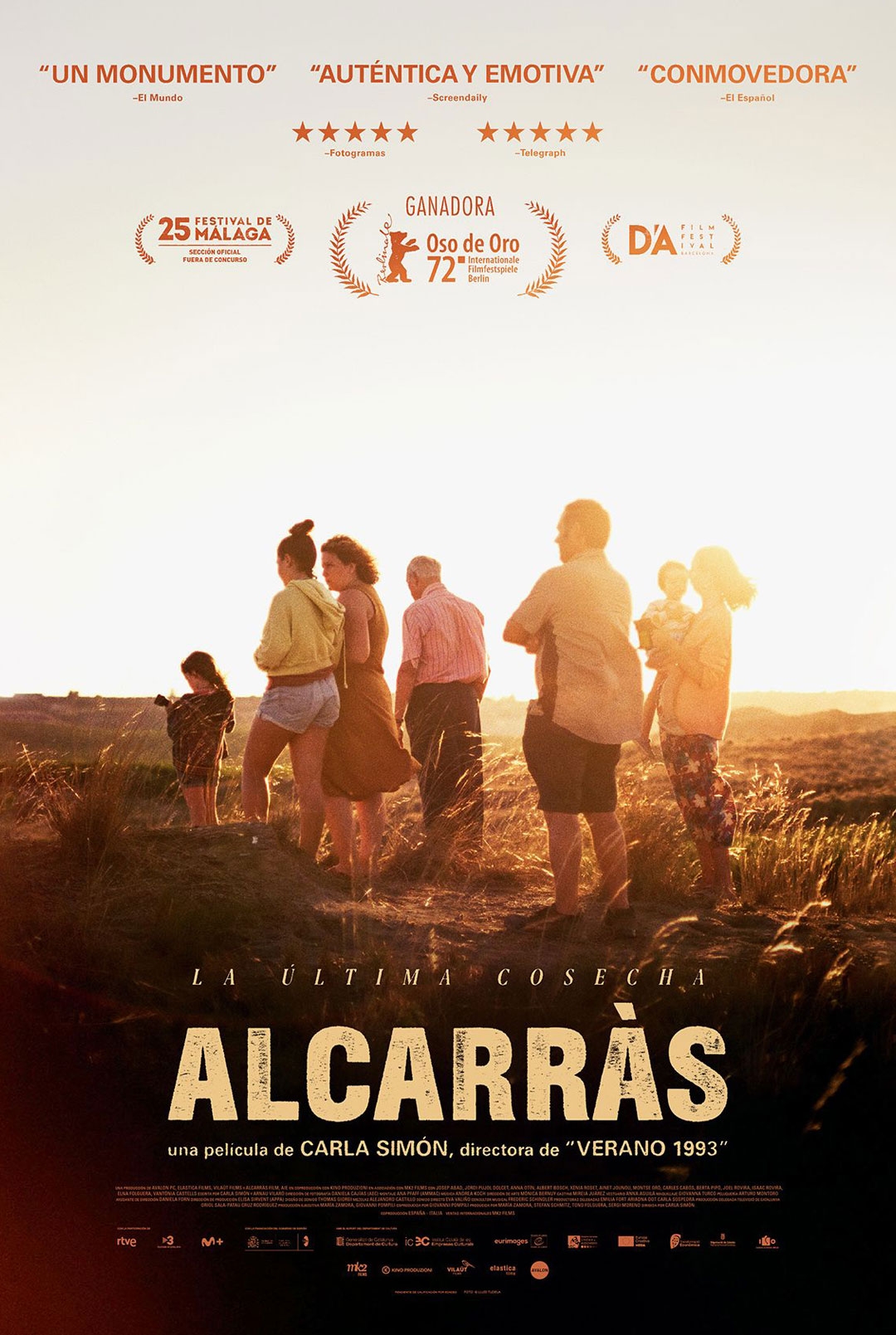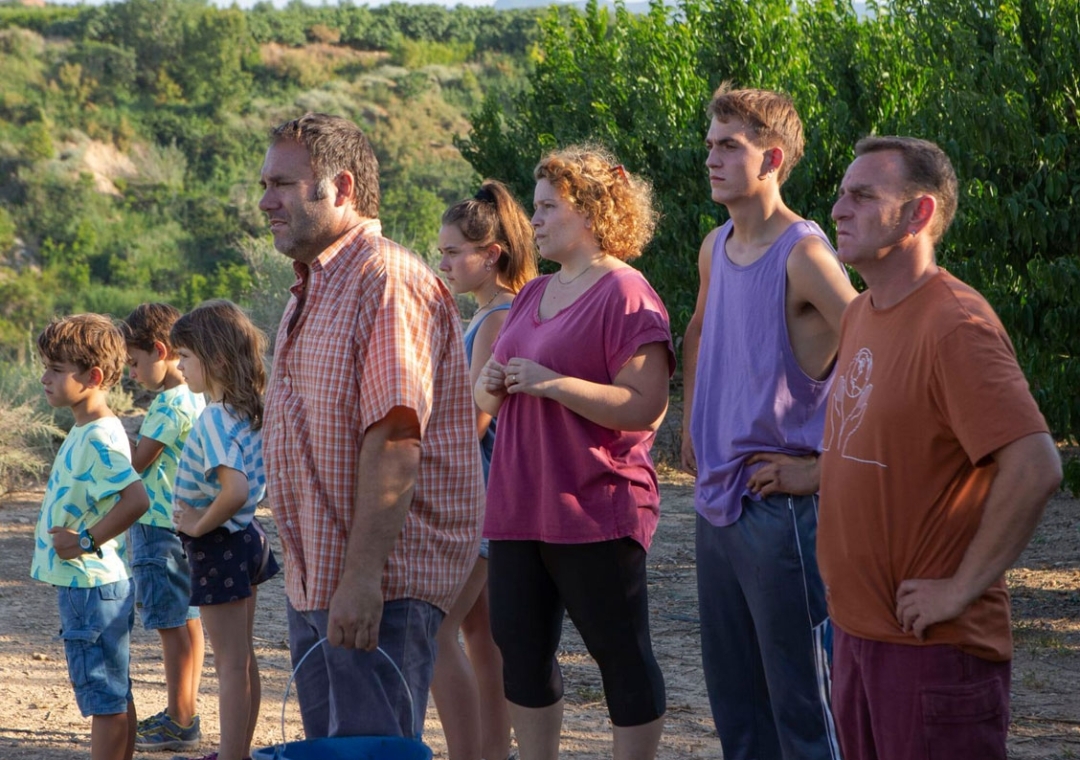Carla Simón
A unique gaze

You don’t find filmmakers like Carla Simón, with a sincere, humble and honest gaze, every day. With just two works, 'Summer 1993' and 'Alcarràs', which aspires to three Platino Awards (for Best Ibero-American Film, Best Director and Best Cinematography), this Catalan filmmaker has turned into a role model for Spanish film. While already working on her next project, which, she assures us, will allow her to experiment, she takes a few minutes to talk about the power of film.
In 2017, Carla Simón (Barcelona, 1986) stood out in Spanish film with her debut, the extremely personal Summer 1993. Therefore, expectations for her second film were sky high, and it did not disappoint. Alcarràs was released at the Berlin International Film Festival at the beginning of 2022 and won the Golden Bear, a feat that our film hadn’t accomplished since 1983 with La colmena. She also became the first Spanish woman to win an award at one of the big film festivals (Cannes, Venice, San Sebastián and Berlin). Now, more than a year later, during which this director has been applauded around the world, this incredible journey, as she herself describes it, comes to an end at the Platino Awards, —sponsored by Iberia—, where she aspires to three awards: Best Ibero-American Film, Best Director and Best Cinematography.
Since the Berlin Film Festival up to the Platino Awards, through the European Film Awards, the Goya Awards, the Gaudí Awards... Did you expect Alcarràs to have such an incredible run?
No, the truth is that Alcarràs’ journey has been incredible, we never thought it would get that far. We filmed in a tiny village with people from the area, something really local, and we couldn’t imagine the universal reach it could have. The Golden Bear guaranteed that journey, since it has meant the film has been shown around the world. You realise the power of culture, of exporting and telling our stories in other places.
Why do you think such a local story like Alcarràs has worked so well abroad?
I think it’s related to the fact that, no matter how local it is, in the end we all have a family and people see themselves reflected in those family dynamics. And then there’s the agricultural issue, which I think is present in all countries, one way or another. The idea of doing small-scale farming is at risk of disappearing.
“The Platino Awards are a celebration of Ibero-American cinema and a meeting point between friends”
The Platino Awards are around the corner; what does receiving recognition from the Ibero-American academies mean to you and your team?
Our team was really happy about the nominations because they are really valuable. They make us feel part of a film industry that brings together producers, directors, actors and teams. For me, the Platino Awards are a celebration of Ibero-American cinema and a meeting point between friends, and they also give me the chance to meet people I admire.

Since it won the Golden Bear, ‘Alcarràs’ hasn’t stopped receiving recognition. © Avalon
In Correspondence, a short film made alongside Chilean director Dominga Sotomayor, you built a bridge with Latin America. How important is establishing these connections?
I was offered the project and the freedom to choose who to do it with; I chose Dominga because I felt like we shared a way of making film. We both start with things that are close to us and I was greatly inspired by her work, so I felt like it made sense to build that bridge. Sharing film makes you grow as a filmmaker. Due to distance, it is harder to establish relationships with Latin America, and you have to actively weave those connections.
This year has been fantastic for Spanish film, but also for Latin-American film. Could you recommend any that are nominated to the Platino Awards?
Yes, I found the Colombian film The Kings of the World, by Laura Mora, really interesting. Also, the Bolivian film Utama, by Alejandro Loayza.
“In baccalaureate, when a teacher put on several films and we started debating about them, I realised the power of film”
Changing the subject, tell us how your passion for film come from? Was there a specific moment that made you realise this is what you wanted to do?
It dawned on me late, unlike other filmmaker friends who were always sure. I grew up in a house in the mountains where we didn’t watch TV, so I didn’t discover it until I was doing my baccalaureate, when a teacher put on several films and we started debating about them, I realised the power of film. The reflections we made about the world and the human condition were sometimes more interesting than the films themselves, so those debates were what made me think that film was a form of expression I wanted to explore. At the time I thought about becoming a journalist because I liked writing and wanted to travel; my teenage dream was working for National Geographic (laughs).
The figure of the female filmmaker has been obscured historically. Do you feel like that’s changing?
Half of the world is made up of men and the other half of women, so you’d think that half the stories would be told by women, but that isn't the case, we’ve always been far from equal. Now the finish line is clear and we’re facing historical reparations, although there’s still a long way to go. This will be positive in many senses, for example in terms of themes. Until now, some themes have not been addressed from a woman’s perspective, from motherhood to desire, and we need to open up discourses and debates around them. I always say there’ll never be enough films about motherhood.
“Until now, some themes have not been addressed from a woman’s perspective, from motherhood to desire”
From your point of view, which is the main talent someone who tells stories through a camera needs?
Curiosity towards the world that surrounds us. You have to research something a lot to be able to tell a story. And you also have to feel love for projects, a love that’s related to the perseverance and patience needed in this industry, because film is not a fast art

‘Alcarràs’ follows the day-to-day lives of the Solé family, who work on growing peaches. © Avalon
After signing off two acclaimed films like Summer 1993 and Alcarràs, expectations are sky high. Are you afraid of disappointing?
I felt that pressure a lot between Summer 1993 and Alcarràs because your second film is always a bit more difficult. Feeling that pressure while creating isn’t easy, in fact I felt it a lot at the beginning, when I started to write, and at the end, during editing, not so much during filming because there’s no time for nonsense. Now I don’t want to feel that pressure, we’re preparing a small project with a story I’ve had in mind for a long time, and which will allow me to experiment. I don’t aspire to win another Golden Bear because each film is its own entity, and the important thing is to tell the story you feel like at the time.
Since you can’t tell me what this new project is about, at least tell me what pushes you to write a story.
That curiosity that we talked about before. Until now, I’ve explored things closely related to my life, understanding how children face death or better understanding my family’s work. Each project comes from different places, but there are always emotions that I find interesting and want to convey, and those feelings can be told in many ways; that’s where the images I may have in mind come into play.


